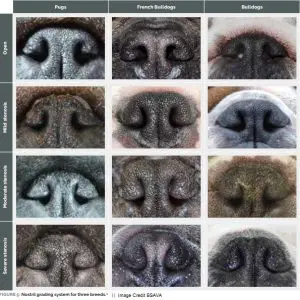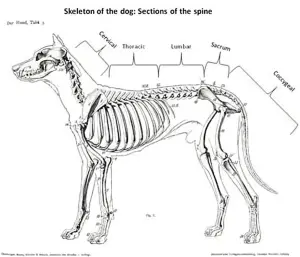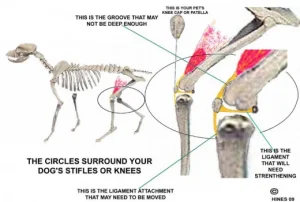Boston Terriers are a popular breed known for their friendly and affectionate nature. However, they are also prone to specific health issues, particularly those related to their brachycephalic characteristics. Brachycephalic dogs are characterized by their short noses and flat faces, which can lead to various respiratory problems.
In this article, we will explore the 9 most common health and breathing problems that affect Boston Terriers and discuss how to manage and prevent them.
What is a Brachycephalic Dog?
Before diving into the specifics of Boston Terrier health issues, it’s essential to understand what it means to be a brachycephalic dog. Brachycephalic syndrome refers to the anatomical features of certain dog breeds, including Boston Terriers, with a shortened skull and flattened face. These characteristics can contribute to a condition called brachycephalic airway syndrome.
Brachycephalic airway syndrome in dogs is a collection of respiratory abnormalities commonly seen in brachycephalic dogs. These abnormalities include narrow nostrils, an elongated soft palate, and a collapsed or narrowed trachea. These structural abnormalities can impede airflow through the upper airway, leading to breathing difficulties.
Health Issues of Boston Terriers
Boston Terriers are beloved for their charming personalities and distinctive appearance. However, this breed is prone to several health issues, particularly those related to their unique brachycephalic (flat-faced) features. Here are the nine most common health and breathing problems in Boston Terriers:
1. Stenotic Nares

Stenotic nares, or narrow nostrils, are a common structural issue among Boston Terriers and other brachycephalic breeds. These narrow nostrils restrict airflow through their nasal passages, making it more difficult for these dogs to breathe comfortably. The limited airflow can result in noisy breathing and increased effort during respiration.
As a result, Boston Terriers may exhibit signs of respiratory distress, particularly during strenuous activities or in hot weather. Addressing this condition may involve surgical intervention to widen the nostrils, alleviating the airflow restriction and improving their overall quality of life.
2. Elongated Soft Palate
Elongated soft palates are another prevalent issue in brachycephalic breeds like Boston Terriers. This condition occurs when the soft tissue at the back of the throat is longer than usual, potentially obstructing the airway. The elongation of the soft palate adds to the challenges these dogs face in maintaining proper respiratory functions. It can cause noisy breathing, snoring, and even episodes of more severe respiratory distress.
Surgical procedures are often necessary to trim and reshape the soft palate, reducing the obstruction and enhancing the dog’s ability to breathe comfortably. Addressing both stenotic nares and elongated soft palates is essential for ensuring the well-being of Boston Terriers with brachycephalic airway syndrome.
3. Brachycephalic Obstructive Airway Syndrome (BOAS)
It is a significant concern for Boston Terriers, comprising various respiratory issues that collectively impact their breathing. Among the primary components of BOAS are stenotic nares, where the nostrils are overly narrow and hinder airflow. Additionally, an elongated soft palate can obstruct the airway further. These structural abnormalities make it challenging for Boston Terriers to breathe efficiently, especially when they exert themselves or experience increased stress.
4. Exercise Intolerance
Due to their distinctive brachycephalic features and the associated respiratory limitations, Boston Terriers often exhibit exercise intolerance. Their shortened snouts and narrowed air passages make it challenging for them to breathe efficiently during physical exertion. As a result, they may struggle to engage in strenuous activities and tend to become fatigued more quickly compared to breeds with more conventional airway anatomy.
5. Heat Sensitivity
The brachycephalic nature of Boston Terriers means they are more prone to overheating due to their respiratory issues. These dogs may struggle to regulate their body temperature efficiently, which makes it vital to keep them cool, especially in hot weather. Heat sensitivity can put them at risk of heat stroke, a potentially life-threatening condition.
To prevent overheating, owners should provide plenty of shade and fresh water and avoid strenuous exercise during hot days. It’s also essential to be aware of signs of heat distress, such as excessive panting, drooling, or weakness, and immediately cool them down if necessary.
6. Allergies

Image Credit: hypoallergenicdog.net
Boston Terriers can be prone to allergies, which may worsen their respiratory problems. Allergies can trigger symptoms like sneezing, nasal congestion, and inflammation in the airways, exacerbating their already compromised breathing. Common allergens include pollen, dust mites, and certain foods.
To manage allergies, it’s crucial to identify and minimize exposure to these triggers. In some cases, veterinarians may recommend allergy testing and prescribe medications or hypoallergenic diets to alleviate symptoms.
7. Eye Problems
This breed is susceptible to various eye issues, leading to discomfort and even vision problems. Conditions like corneal ulcers and cataracts are common in Boston Terriers. Corneal ulcers, often caused by eye trauma or scratches, require prompt treatment to prevent infection and protect the eye’s integrity. Cataracts, on the other hand, cloud the eye’s lens, affecting vision. Regular eye check-ups and early intervention are crucial to maintaining eye health and preventing complications.
8. Hemivertebrae

Image Credit: ufaw.org.uk
Hemivertebrae is a spinal condition that can affect Boston Terriers, leading to mobility problems. In this condition, the vertebrae are abnormally shaped, causing pressure on the spinal cord. Depending on the location and severity, it can result in issues like paralysis, incontinence, or pain.
Boston Terrier owners should be vigilant for signs of discomfort, changes in mobility, or coordination problems and seek veterinary care if they suspect spinal issues. Treatment options may include physical therapy, medications, or surgery in severe cases.
9. Patellar Luxation

Image Credit: hubpages.com
Patellar luxation, or dislocated kneecaps, can concern Boston Terriers and other small dog breeds. This condition occurs when the kneecap shifts out of its normal position, causing lameness, discomfort, and an abnormal gait. Owners must observe signs of patellar luxation, such as limping or favoring a leg.
Depending on the severity, veterinary intervention may be necessary to correct the issue, ensuring the dog’s mobility and comfort. Regular check-ups with a veterinarian can help detect and address patellar luxation and other health issues early on.
Boston Terrier owners must be aware of these health issues, monitor their pets for any symptoms, and seek veterinary care when necessary to ensure their well-being.
How Does Brachycephalic Airway Syndrome Affect Boston Terriers?
Brachycephalic airway syndrome can have a significant impact on the health and well-being of Boston Terriers. These dogs have a compromised upper airway due to the structural abnormalities mentioned earlier. As a result, they often face breathing difficulties, especially during exercise or in hot weather. Boston Terrier owners must understand these issues and take appropriate management steps.
Detailed Explanation of Breathing Difficulties in Boston Terriers
Boston Terriers with brachycephalic airway syndrome may exhibit various breathing difficulties. These can include noisy breathing, snoring, and even respiratory distress. The compromised airflow can cause these dogs to struggle to get enough oxygen, leading to fatigue and discomfort. Owners need to monitor their Boston Terriers closely for any clinical signs of breathing problems.
The Role of Abnormal Upper Airway Structures in Brachycephalic Airway Syndrome
The abnormal upper airway structures, such as narrow nostrils and elongated soft palates, play a key role in brachycephalic airway syndrome. These structures obstruct air passage, making it difficult for Boston Terriers to breathe properly. Regular veterinary check-ups can help identify these abnormalities and determine the best course of action for managing them.
Identifying Common Airway Obstructions of Boston Terriers
In addition to narrow nostrils and elongated soft palates, Boston Terriers may also experience obstructions in their airway, such as collapsed or narrowed tracheas. These obstructions further impede the flow of air and can worsen breathing difficulties. Veterinary intervention may be necessary to surgically correct these obstructions and improve the quality of life for affected dogs.
What Are the Symptoms and Health Effects of Brachycephalic Airway Syndrome?
Recognizing the symptoms of brachycephalic airway syndrome in Boston Terriers is crucial for early intervention and treatment. Some common signs include noisy breathing, snorting, and exercise intolerance. If left untreated, this syndrome can have severe health consequences for Boston Terriers. Regular veterinary check-ups are essential for monitoring their respiratory health and addressing any potential issues promptly.
Recognizing the Signs of Brachycephalic Airway Syndrome
The signs of brachycephalic airway syndrome can vary from mild to severe. Noisy breathing, snoring, and difficulty breathing are some common signs. Boston Terriers with severe cases of the syndrome may exhibit respiratory distress, gasping for air, and collapsing episodes. These symptoms should never be ignored, as they indicate a significant obstruction in the airway and require immediate veterinary attention.
Potential Long-term Health Consequences for Boston Terriers with Brachycephalic Airway Syndrome
Long-term health consequences can arise if brachycephalic airway syndrome is left untreated in Boston Terriers. The compromised respiratory function can lead to chronic stress on the heart and lungs, resulting in heart murmurs, respiratory infections, and even heart failure. Regular veterinary care is essential to address any potential secondary problems and ensure the overall well-being of Boston Terriers.
The Importance of Regular Veterinary Check-ups for Boston Terriers
Regular veterinary check-ups are crucial for Boston Terriers, especially those with brachycephalic airway syndrome. Veterinarians can assess their respiratory health, monitor existing conditions, and provide appropriate treatment or management plans. Early intervention and regular care can significantly improve the quality of life for Boston Terriers with these health issues.
How to Manage Brachycephalic Airway Syndrome in Boston Terriers?
Managing brachycephalic airway syndrome in Boston Terriers requires a multi-faceted approach that includes both preventive measures and treatment options. By incorporating these strategies into their daily routine, owners can help minimize breathing problems and provide their Boston Terriers with a better quality of life.
Preventive Measures to Minimize Breathing Problems in Boston Terriers
Preventive measures are crucial in managing brachycephalic airway syndrome in Boston Terriers. Keeping them in a relaxed and well-ventilated environment, avoiding strenuous exercise in hot weather, and providing plenty of fresh water can help prevent overheating. Additionally, maintaining a healthy weight through proper diet and exercise can minimize the risk of respiratory difficulties.
Surgical Options for Correcting Obstructive Airway Issues in Boston Terriers
In more severe cases of brachycephalic airway syndrome, surgical intervention may be necessary. Various procedures can be performed to correct the specific obstructions in the airway, such as elongated soft palate resection and nostril widening. Veterinary surgeons with experience in brachycephalic breeds can guide owners through the surgical process and provide postoperative care instructions.
Postoperative Care and Recovery for Boston Terriers with Brachycephalic Airway Syndrome
Postoperative care is crucial for Boston Terriers undergoing surgery for brachycephalic airway syndrome. Owners should carefully follow the veterinarian’s instructions regarding pain management, wound care, and activity restrictions. With proper care and monitoring, Boston Terriers can recover well from surgery and enjoy an improved quality of life.
What Other Health Conditions Are Common in Boston Terriers?
While brachycephalic airway syndrome is one of the most common health issues in Boston Terriers, they may also be prone to other conditions. Owners must be aware of these issues and take appropriate measures to address and prevent them.
The Link Between Brachycephalic Airway Syndrome and Other Health Issues
Brachycephalic airway syndrome can contribute to the development of other health issues in Boston Terriers. The compromised respiratory function due to airway abnormalities can increase the risk of respiratory infections, pneumonia, and exacerbation of existing respiratory conditions. Regular veterinary care and a proactive approach to respiratory health are essential for preventing these secondary problems.
Addressing Allergies and Skin Problems in Boston Terriers
Boston Terriers may also be prone to allergies and skin problems. They are known to have sensitive skin, which can lead to issues like itchiness, inflammation, and infections. Regular grooming, proper diet, and regular check-ups with a veterinarian can help address these issues and keep Boston Terriers comfortable and healthy.
The Importance of Regular Exercise and Weight Management for Boston Terriers
Regular exercise and weight management are crucial for the overall health of Boston Terriers. Obesity can further exacerbate respiratory issues and put additional strain on their already compromised airways. Owners should ensure that their Boston Terriers receive regular exercise appropriate for their breed while monitoring their weight to maintain a healthy body.
How to Keep Your Boston Terrier Cool and Prevent Overheating?
Boston Terriers, like other brachycephalic breeds, are more susceptible to overheating due to their compromised ability to regulate body temperature. Owners must keep their Boston Terriers cool and prevent heat-related issues.
Tips for Keeping Your Boston Terrier Safe During Hot Weather
When the weather is hot, it’s essential to provide extra care to keep your Boston Terrier cool. This can be done by keeping them in air-conditioned environments, providing access to shaded areas, and offering plenty of fresh water. It’s also important to avoid exercising during the hottest parts of the day and to be mindful of signs of overheating.
Recognizing the Signs of Heatstroke in Boston Terriers
Heatstroke is a severe condition that can occur if a Boston Terrier becomes overheated. Signs of heatstroke may include excessive panting, drooling, vomiting, and collapse. If you suspect your Boston Terrier is experiencing heatstroke, it’s essential to seek veterinary attention immediately, as this condition can be life-threatening.
Precautions to Take When Exercising Your Boston Terrier
When exercising your Boston Terrier, it’s essential to take certain precautions to avoid overheating and respiratory distress. This includes choosing cooler times of the day for exercise, engaging in low-intensity activities, and providing plenty of breaks for rest and water. Understanding your Boston Terrier’s physical limitations and acknowledging signs of fatigue can help prevent overheating during exercise.
When to Consult a Veterinarian for Breathing Problems in Boston Terriers?
Breathing problems should never be ignored in Boston Terriers, as they can indicate a serious underlying health issue. Knowing when to consult a veterinarian is crucial for the well-being of your pet.
Recognizing the Severity of Breathing Difficulties in Boston Terriers
Owners need to recognize the severity of breathing difficulties in their Boston Terriers. Mild symptoms like snorting or occasional noisy breathing may not be as concerning, but severe symptoms like gasping for air or collapsing require immediate veterinary attention. Regular check-ups can also help monitor your Boston Terrier’s respiratory health and detect any changes or issues early on.
Conclusion
In conclusion, while Boston Terriers are beloved for their charming personalities and distinctive tuxedo-like appearance, they are not without their health challenges, mainly related to their brachycephalic nature.
The nine most common health and breathing problems they face, including Brachycephalic Obstructive Airway Syndrome (BOAS), exercise intolerance, heat sensitivity, allergies, eye problems, hemivertebrae, and patellar luxation, underscore the importance of vigilant care and regular veterinary check-ups.
Boston Terrier owners should be well-informed about these potential health issues, recognize the signs early, and take proactive measures to maintain their pets’ well-being. From managing their respiratory health to addressing allergies and watching out for orthopedic problems, a well-rounded approach to healthcare can ensure that these affectionate and lively companions lead happy, comfortable lives. With proper care and attention, Boston Terriers can thrive, bringing joy to their families for years to come.



